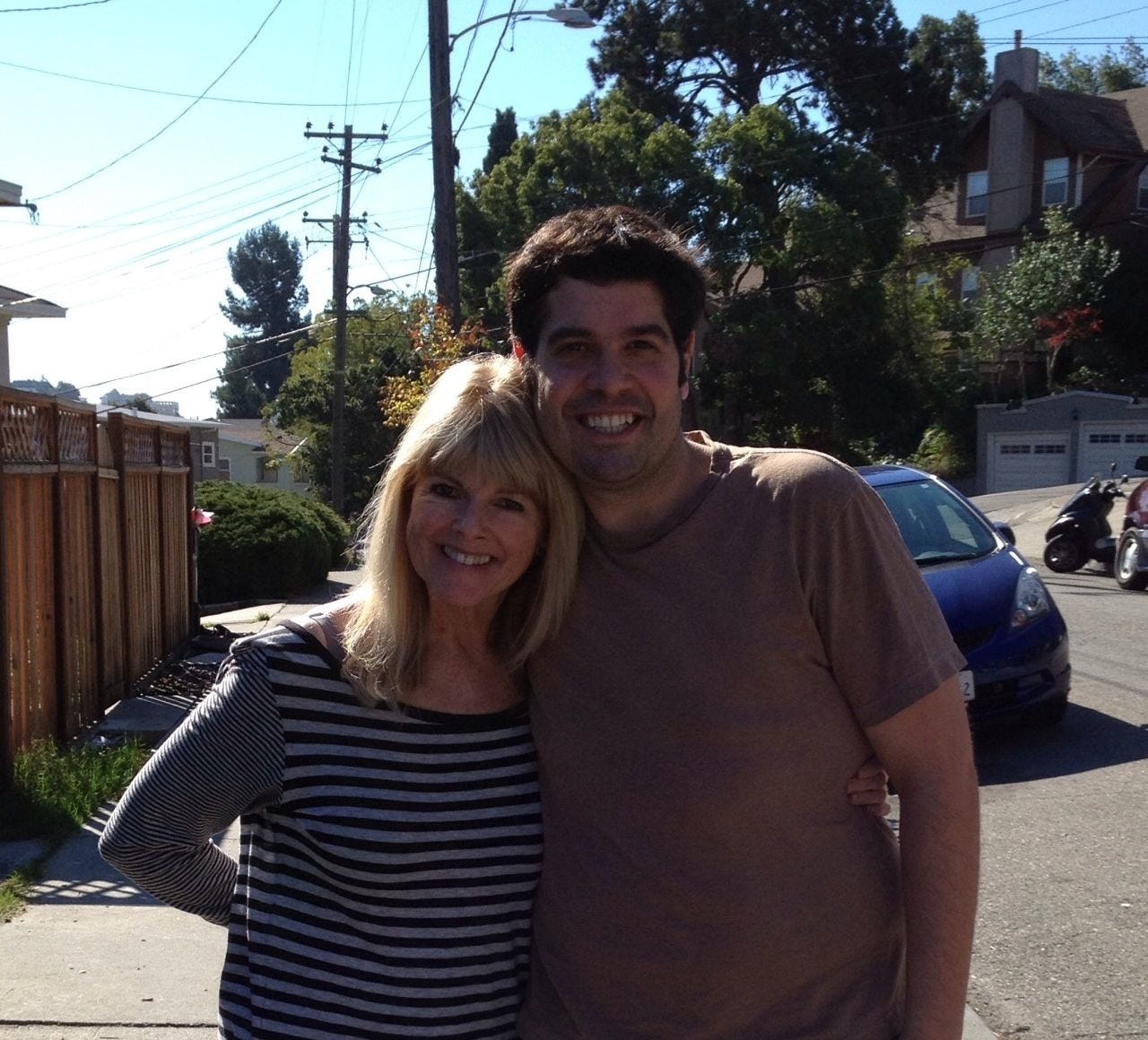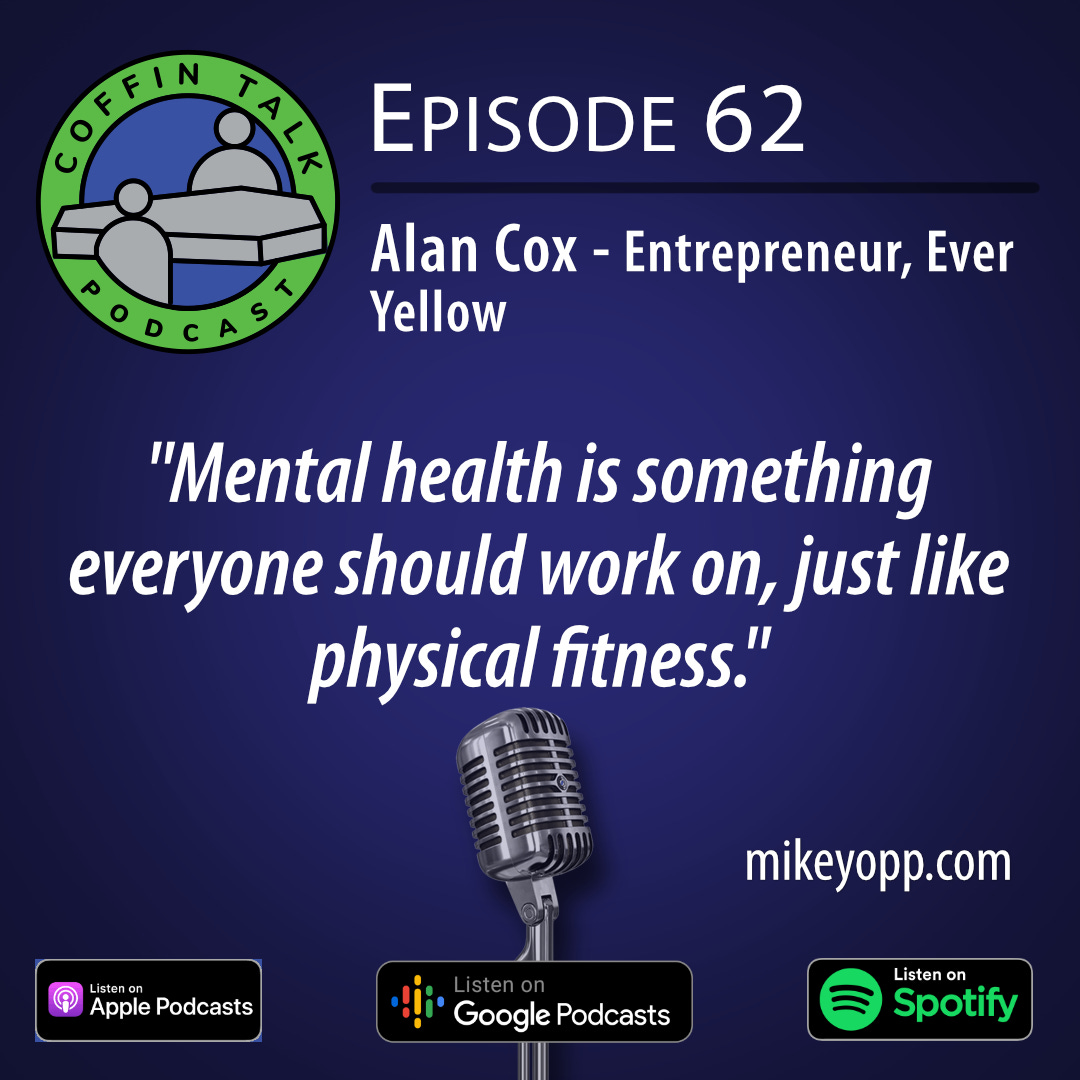Be (T)Here Now
It's the Mid-come, not the Outcome
Aunt Judy and me in 2016
I don’t know how to write a tribute to my Aunt Judy. It’s not because she’s unworthy, or because I don’t know how I feel about her. There’s just no template for this loss. She’s been a gateway of love, for most of my life, and nothing will replace her.
Aunt Judy isn’t really my aunt. She’s my mom’s best friend. She is, however, the only person I’ve ever given this title. I have many other amazing family members that I love, but I’ve actually spent more time with Aunt Judy than anyone else.
Judy was a fixture in my youth, thanks to a job she took that required a week of work, every month, in the Bay Area, where I grew up. She thus stayed with us, twelve times a year, most of my life, lasting well past the time I left high school for college.
The job? Aunt Judy loves animals, so she dedicated her life to them. Indeed, up until the last moment her brain cancer allowed, she was still working on behalf of all things un-human for The Latham Foundation, ten-plus years past retirement age!
Judy has always supported me. Like when she got me a subscription to Entertainment magazine after I announced my decision to become the next Stanley Kubrick, a small example of how she’s always taken me seriously, even as a teenager.
But what I want most to express, is how much her unconditional love has done for me. I’m writing this while she’s still alive, because I’m aware, as Ram Dass says, of how she has opened a portal to love, and I’m now terrified of my future without it.
And this is the key to understanding and accepting loss. We fear and grieve the loss of people we love because we become enticed and addicted to how they make us feel, when the truth is that they don’t make us feel love, they allow us to feel it.
I therefore tried to tell my beacon of love how much she means to me, on my last visit to see her, as I stared into her timeless eyes that now inhabit a cancer-ravaged body, expressing its last days on Earth. Thankfully, she got the message.
I cried the whole time, and she didn’t, which made the visit so much worse, yet so much better. Worse, because I hate crying, but better because tears are the highest form of communication one can produce in a sacred moment of humanity.
Aunt Judy reads most of these. She even told me that between gasps of air from her hospice bed, as she looked at me the way you look at a kid that can’t handle a scary movie. And that was her last message to me: a smile and look I’ll take to my grave.
So I say to her, while she’s still here: Thank you Aunt Judy, for teaching me how to love myself and others, and for teaching me support. I’m humbled by our bond, and I will never lose the love you gave me. After all, you can’t lose what you are.
Please support my efforts to humanize humanity and become a paid subscriber. It puts a huge grin on my big, dumb, human face. Isn’t that fun?
Wanna hear amazing people talking about amazing things? Then Coffin Talk is for you! This week I interviewed Alan Cox, in New Zealand, about his mission to change the narrative around mental health and help people achieve mental fitness. Alan is now a successful entrepreneur, after suffering decades of poor mental health. He's managed to bounce back with an incredible story of resilience and recovery and now devotes his life to improving the wellbeing of millions of people around the world. Hear much, much more in Episode 62: “The Cold Light of Day”.




This is beautiful 😍 I particularly like the part about them allowing us to feel love!